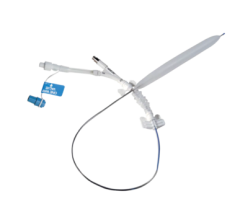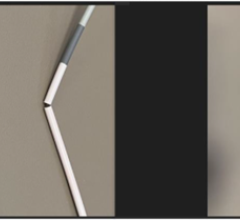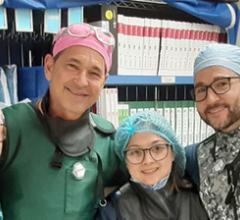April 23, 2014 — Interim results from The Chocolate Bar Registry conducted in the United States demonstrate that use of the Chocolate PTA balloon achieved high rates of treatment success and limb preservation in patients with peripheral arterial disease. The results from the first 350 patients enrolled and treated were presented by Tony Das (Cardiovascular Research Institute, Dallas, Texas) at the Leipzig Interventional Course (LINC) 2014.
Chocolate Bar is a prospective, core lab adjudicated registry conducted at 33 clinical centers in the United States. A broad range of patients with advanced atherosclerotic disease in their legs were treated in this trial including patients with high risk of amputation (Rutherford 5 and 6, total occlusions, long and calcified lesions). The study included two distinct patient groups: those with atherosclerotic disease mainly in above-the-knee vessels (ATK) or below-the-knee vessels (BTK). Das reported the protocol mandated three month and six month follow up respectively.
The highlights of the interim data presented included:
- Treatment was completed without major dissection in 98% of all patients
- Affected limbs were preserved at follow up in 96% of ATK patients and 97% of BTK patients
- Re-intervention of the limb was not required in 89% of ATK patients and 93% of BTK patients
Jihad Mustapha (Metro Hospital, Wyoming, Mich.,), principal investigator for the trial, commented, "In this all-comers registry comprised of a large number of patients with diabetes and some of the most complex lesions including chronic total occlusions and high degrees of calcium, these results with Chocolate are remarkable. Chocolate is an attractive alternative to conventional therapies that often have poor outcomes."
"Chocolate allows me the confidence to achieve a larger lumen without the concern that I might dissect the vessel and have to leave behind a permanent implant such as a stent," added Dr. Andrej Schmidt (Park Hospital, Leipzig, Germany) who successfully used Chocolate during a live case transmission at the LINC 2014 conference.
For more information: www.trirememedical.com


 June 13, 2024
June 13, 2024 









